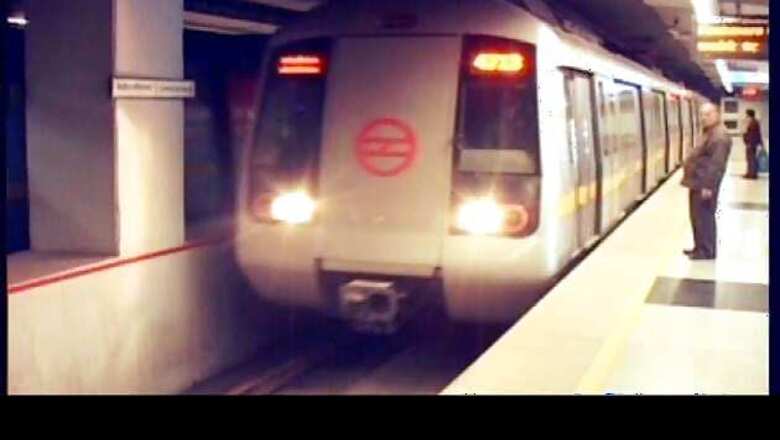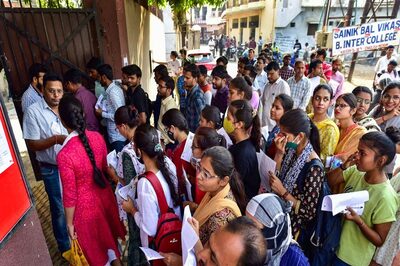
views
New Delhi: The restrictions and curbs on traffic movement which are in place due to ongoing work for Phase-III of Delhi Metro are posing hassles and impediments for commuters, a recent survey has found.
During a customer satisfaction survey conducted by Delhi Metro Rail Corporation (DMRC) between May 15 and May 21 this year, commuters expressed concern over Metro construction-related restrictions.
In the survey, for the tackling of commuter-related aspects outside Metro stations, respondents gave it a 5.63 rating. Giving its reaction in the matter, a DMRC spokesperson said on Sunday that "an action plan has already been prepared and the departments concerned have already been instructed to initiate remedial action." As per the survey, which was conducted at DMRC's top 22 Metro stations in terms of ridership, commuters said that they were
largely satisfied with the quality of service.
The survey covered 1,09,188 respondents who were asked to rate the various aspects of the Metro service. The responses have ranged between excellent (10 points) to good (six). On an average, commuters have given an 8.24 rating for information available at Metro stations, 8.13 for travel on Metro trains, 8.08 for the smart card facility, 8 on security and 7.83 for behaviour of customer care representatives and their alertness.
The survey covered such aspects of Metro operations as availability, accessibility, information, quality of service, customer care, comfort, security and safety. "The findings of the survey reveal that the commuters are largely satisfied with the quality of service and have rated Delhi Metro as 'very good'," he said.
Of the commuters using Delhi Metro every day, 73 per cent were males and the rest females. Service sector professionals and students formed the bulk of the ridership comprising, respectively, 60 and 28 per cent of the total respondents.
In terms of the age distribution, people in the 19 to 30 years age group formed the majority of the respondents at 70 per cent. Those belonging to the 31 to 50 years age group were second at 21 per cent.
The survey was conducted as per EN13816, a European survey system widely used to assess the performance of public transportation systems in Europe.




















Comments
0 comment